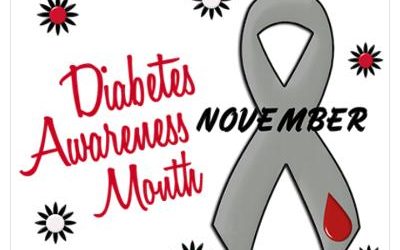
MAY IS LUPUS AWARENESS MONTH:
PUMP UP THE PURPLE!
Have you noticed a lot of people donning the color purple this month? It could be because May is Lupus Awareness Month. “Pump up the Purple” is the call to action for a campaign to raise awareness and funds for lupus research and education programs.
Lupus is a chronic auto-immune disease that can adversely impact many parts of the body. There are several different kinds of lupus, and no two cases are alike. Many scientists believe lupus develops in response to a combination of factors within and outside the body, including hormones genetics and the environment. Roughly five million people around the world are estimated to have lupus, including 1.5 million in the United States. Some 16,000 new cases of the disease are reported each year, developing mostly in younger people, ages 15-44.
Ninety percent of patients living with lupus are female, and research indicates that minority women are two to 3 times more likely to contract the disease than their white counterparts. A 2014 study conducted by the Michigan Lupus Epidemiology and Surveillance Program minority women tend to develop lupus at a younger age, experience more complications and have higher mortality rates.”
According to the Lupus Foundation of America, nearly two-thirds of the general public no little or nothing about the disease beyond its name. To help change that and combat the disease, here are some facts that you should know:
- Lupus is not contagious. You cannot catch it or give it to someone else.
- While there have been findings that indicate that genes may somehow figure into the development of lupus, no one gene or group of genes has been proven to cause lupus.
- Lupus is often referred to as the “great imitator” because its symptoms mirror those of many other diseases, often making it difficult to diagnosis and, as a result, to treat.
- People with lupus report experiencing a variety of symptoms including recurring low-grade fevers; extreme fatigue; butterfly-shaped skin rashes; joint pain and swelling; hair loss; ulcers on the nose or in the mouth; chest pain or breathing problems, kidney inflammation; gastrointestinal problems; blood clotting and anemia. The occurrence of these symptoms is often referred to as flares or flare-ups. They can vary in intensity, degree, and frequency.
- Lupus is not easy to diagnose, and it may take months or longer to confirm. People experiencing four or more of its symptoms with no other explanation for why they are occurring are encouraged to discuss lupus with their doctors.
- Lupus is generally diagnosed by providing your doctor with a complete and accurate medical history; undergoing a physical examination, X-rays and lab tests. It is not uncommon for a medical practitioner to refer a patient to a rheumatologist who specializes in diagnosing, managing and treating the disease.
- Early diagnosis, as well as avoiding triggers such as excessive exposure to the sun, can help in managing lupus. A rheumatologist can treat lupus with a variety of medications that can slow the progress of the disease and help lessen the discomfort associated with its symptoms.
- While there is presently no cure for lupus, understanding the disease, how it presents itself, and possible triggers can help patients prevent flare-ups or make the symptoms less severe. Experts agree that the best course of action is to work closely with a doctor to develop, review and, when necessary, revise a treatment plan. While some people die from the disease, with close follow-up and treatment, research indicates that 80-90 percent of people living with lupus can expect to live a normal lifespan.
To learn more about lupus, visit the Lupus Foundation of America at https://www.lupus.org.
Information and statistics cited in this article were derived directly from the following sources:
https://www.lupus.org
www.lupusawarenessmonth.org/gopurple.html
https://resources.lupus.org/entry/facts_and_statistics
www.health.facty.com/conditions/lupus/10-symptoms-of-lupus/
www.lupuscorner.com
OTHER NEWS
BWA 42nd Annual Symposium
WASHINGTON, D.C. – Friday, September 13, 2019 – Six months away from the first 2020 presidential primaries and caucuses, The Black Women’s Agenda, Inc. (BWA) hosted its 42nd Annual Symposium Town Hall and Awards Luncheon, encouraging the nearly 1,800 attendees to flex their political muscle and to help usher in the changes that they want to see in their communities and across the nation.
Joy-Ann Reid, host of MSNBC’s “AM Joy,” moderated the Town Hall, sharing the stage with a panel of journalists, political commentators, and other experts who encouraged participants to live their best lives by giving voice to the issues that are important to them and exacting promises for their support.
Spirit of Change Conversation Series
Relatedness is a basic psychological experience. We all need to feel connected to other human beings: to care and be cared for, and to belong. We believe that bringing our country together starts with meaningful conversation. Our goal is to reduce polarization and social bias, to increase the willingness to engage in meaningful dialogue, and create an increased understanding and appreciation for our differences and similarities.
November is National Diabetes Awareness Month
According to the American Diabetes Association, “1.25 million Americans have type 1 diabetes and 40,000 people will be diagnosed with it this year. Type 1 diabetes occurs at every age, in people of every race, and of every shape and size.
In type 1 diabetes, the body does not produce insulin. The body breaks down the carbohydrates you eat into blood sugar that it uses for energy—and insulin is a hormone that the body needs to get glucose from the bloodstream into the cells of the body. With the help of insulin therapy and other treatments, everyone can learn to manage their condition and live long healthy lives.
Type 2 diabetes is the most common form of diabetes—and it means that your body doesn’t use insulin properly. And while some people can control their blood sugar levels with healthy eating and exercise, others may need medication or insulin to help manage it.
No feed found with the ID 1. Go to the All Feeds page and select an ID from an existing feed.
© 2025 The Black Women’s Agenda, Inc. All Rights Reserved. Privacy Policy








